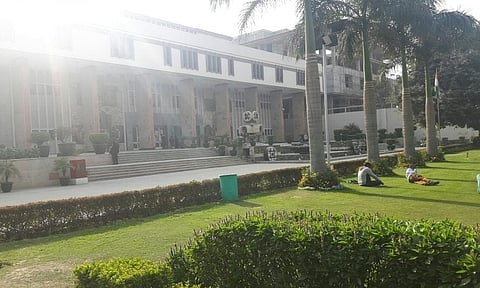
- News
- Columns
- Interviews
- Law Firms
- Apprentice Lawyer
- Legal Jobs
- हिंदी
- ಕನ್ನಡ

The Delhi High Court recently ruled that Section 14(1)(a) of the Insolvency and Bankruptcy Code (IBC), 2016 would not apply to proceedings which are beneficial to the corporate debtor.